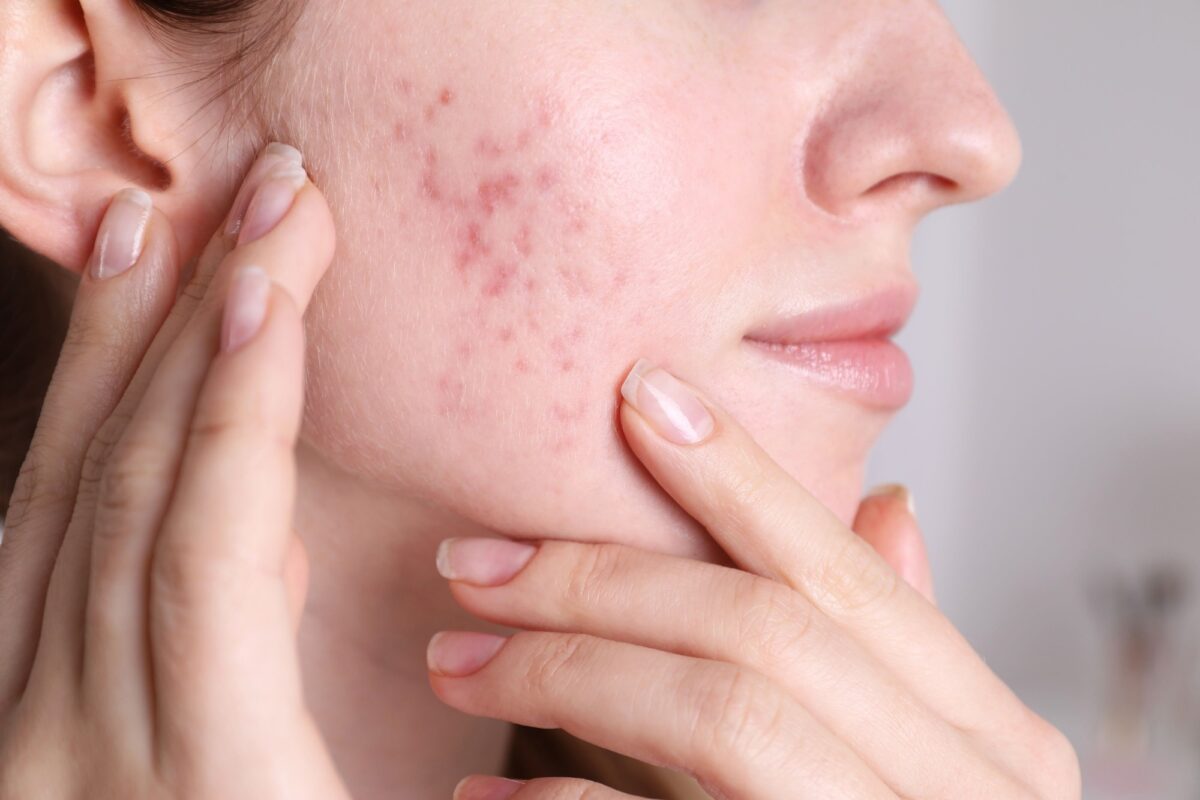Blog
What causes acne to come back? A new study examines the effects of isotretinoin
Recent the study assessed factors associated with disease recurrence after isotretinoin use acne treatment.
Treatment of acne with isotretinoin
Isotretinoin, commonly called Accutane, is the only approved treatment for severe acne. Although isotretinoin is extremely effective for most people with acne, some people experience flare-ups. As a result, patients prone to acne flare-ups are treated with additional courses of isotretinoin.
It is crucial to understand whether certain factors, such as patient characteristics, isotretinoin dosage, and treatment regimen, influence acne recurrence. This information can be used to design optimal isotretinoin treatment regimens that maximize treatment outcomes and minimize side effects. Better understanding will also enable clinicians to better manage patient expectations regarding treatment outcomes, including the possibility of relapse, and formulate effective maintenance treatment plans.
Previous studies have documented acne recurrence rates ranging from 9.4% to 65.4%, with repeated isotretinoin use ranging from 1.7 to 23.1%. This variability was attributed to unrepresentative populations, incomplete follow-up, small sample sizes, and different isotretinoin dosing regimens. Inconsistency in definitions of acne recurrence may also contribute to discrepancies in clinical reporting.
About the study
In the current study, researchers examined the frequency of acne flare-ups after isotretinoin treatment and factors that may increase the risk of acne flare-ups. All data was obtained from the MarketScan commercial claims database from January 1, 2017 to December 31, 2020.
Patients with at least one diagnosis of acne according to the International Statistical Classification of Diseases and Related Health Problems, tenth revision code, were included in the analysis. All patients were 12 years of age or older and were receiving isotretinoin treatment for acne.
The index date reflected the date of completion of the first course of isotretinoin. Prescriptions were also analyzed to determine isotretinoin treatment regimens.
Acne recurrence was noted when the patient was prescribed systemic acne treatment with oral antibiotics such as doxycycline, minocycline, trimethoprim-sulfamethoxazole, amoxicillin, cephalexin, spironolactone, and isotretinoin due to a recent acne encounter. Isotretinoin retesting was also determined based on the individual receiving another isotretinoin prescription after the index date.
Research results
The study involved 1,856,012 acne patients, 19,907 women and 9,403 men. The mean duration of initial courses of isotretinoin prescribed by dermatologists was 5.6 months, with a maximum daily dose of 0.93 mg/kg/day and a cumulative dose of 132.4 mg/kg. The mean follow-up period for this treatment was 24.9 months.
In this study cohort, 19,907 patients reported acne recurrence, representing an acne recurrence rate of 12.9 per 100 person-years. The median time to acne recurrence was 7.5 months.
Approximately 2.1%, 25.8%, 15.6%, 25.2%, and 31.3% of patients were prescribed a drug for systemic acne within one month, one to three months, three to six months, six to twelve months, respectively months and over twelve months. from the indexing date.
Patients with acne recurrence were often treated with oral antibiotics after completion of isotretinoin treatment. A Cox proportional hazards regression model showed that women had a significantly higher risk of acne recurrence compared to men. The cumulative dose of isotretinoin was also associated with significantly reduced acne recurrence rates.
Approximately 8.2% of patients underwent retesting with isotretinoin, an estimated 4.3 per 100 people. The median time to the second course of isotretinoin was 2.8 months, including a maximum daily dose of 0.82 mg/kg/day and a cumulative dose of 52.6 mg/kg over 2.3 months.
Of the 22.2% of patients who received a second course of isotretinoin of four months or more duration, 26.7% of patients were retried at least six months after completing the initial course. Multivariate modeling revealed that female gender, age, and cumulative dose were associated with reduced isotretinoin retrial rates.
Stratified analyzes showed that female gender was significantly associated with reduced isotretinoin retrials in both adolescents and adults. A higher cumulative dose was associated with a reduced rate of acne flare-ups. Patients treated conventionally and using maximum daily doses of isotretinoin had a lower risk of acne recurrence compared to patients receiving low maximum daily doses.
Conclusions
The study results indicate that a daily dose of isotretinoin was not associated with a significant reduction in the risk of acne recurrence or the rate of isotretinoin retrial among conventional and high cumulative dose users. However, a higher cumulative dose of isotretinoin may potentially reduce the risk of acne recurrence and the rate of repeated isotretinoin use.
In the future, further research is needed to develop optimized strategies to prevent acne recurrence in high-risk individuals.

